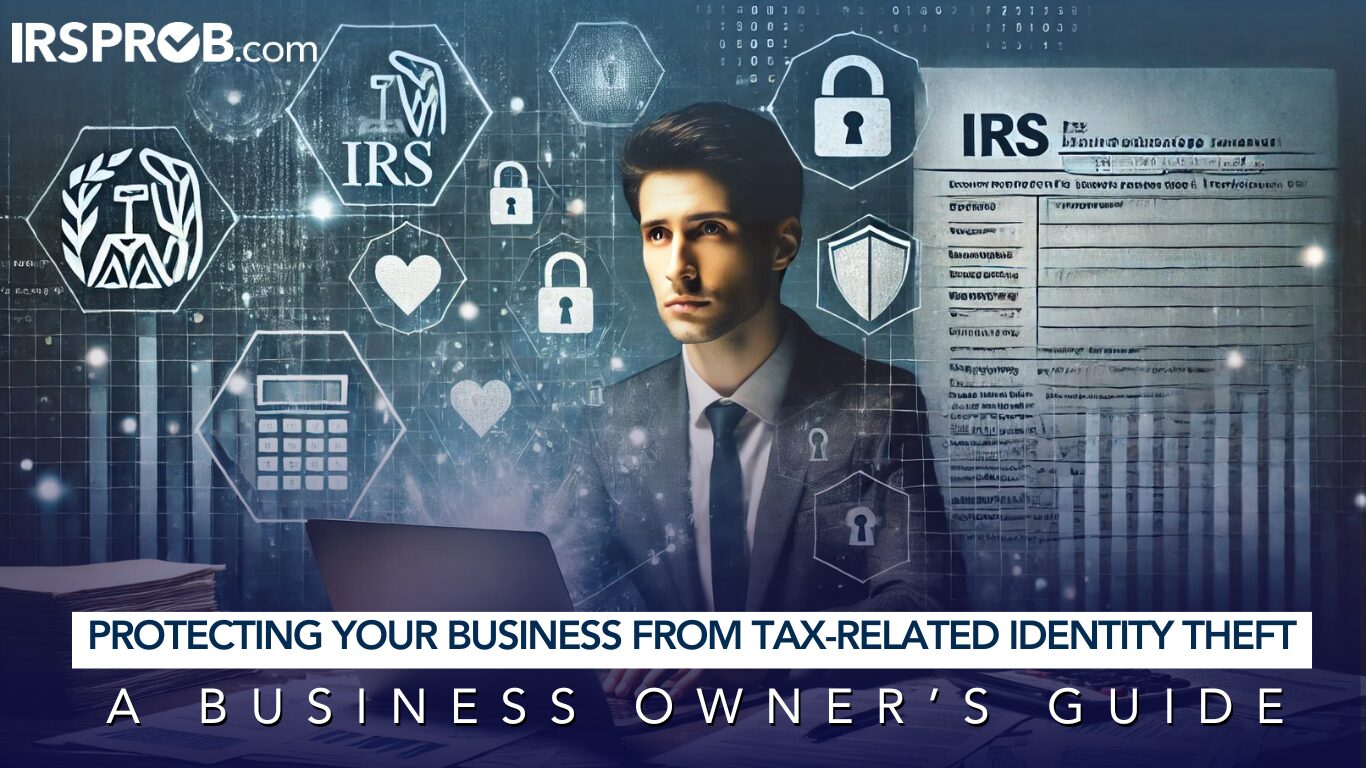
As a business owner, protecting your personal and financial information from identity theft is crucial, especially when it comes to taxes. Identity theft is not just an inconvenience—it can cause major financial harm and put your business operations at risk. Tax-related identity theft occurs when someone uses your personal information, such as your Social Security Number (SSN), to file fraudulent tax returns and claim refunds. The IRS has implemented several measures to combat these scams, but awareness and proactive steps are your best defense.
Common Tax-Related Identity Theft Scams
Identity thieves employ several tactics to steal your information. Here are some of the most common scams to watch out for:
- Phishing Emails: Fraudulent emails that appear to come from the IRS or associated programs like the Electronic Federal Tax Payment System (EFTPS). These emails contain links to fake websites designed to steal your personal and financial data.
- Phone Scams: Scammers often call or text, claiming to be IRS agents, threatening arrest, deportation, or license revocation if you don’t pay a fabricated tax debt.
- Bogus Refund Emails: These emails claim that you’re eligible for a tax refund and ask you to follow instructions to claim it, ultimately leading you to disclose sensitive information.
- Fake IRS Documents: Scammers may send fake IRS notices, such as those related to tax transcripts, which contain attachments carrying malware.
The key takeaway here is that the IRS will never initiate contact via email, text, or social media to request personal or financial information. Additionally, IRS agents typically do not contact taxpayers by phone or fax unless you have initiated communication.
How to Recognize Identity Theft in Your Taxes
One of the most alarming aspects of identity theft is that you may not realize your information has been compromised until it’s too late. Here are some warning signs:
- Rejected e-File: Your tax return is rejected because a return using your SSN, your spouse’s SSN, or a dependent’s SSN has already been filed.
- IRS Notice: You receive an IRS notice stating that multiple returns were filed in your name, you have a balance due for a year you didn’t file, or you earned wages from an employer you’ve never worked for.
If you encounter any of these issues, act quickly. Contact the IRS and file Form 14039, Identity Theft Affidavit, to notify them that your information may have been stolen.
What to Do if You Suspect Identity Theft
If you suspect you’re a victim of tax-related identity theft, follow these steps:
- Notify the IRS Immediately: Call the IRS Identity Theft Victim Assistance (IDTVA) at 800-908-4490.
- File Form 14039: This form alerts the IRS to mark your account for any suspicious activity. It also helps prevent further damage to your tax account.
- Secure Your Information: Ensure all your sensitive financial data is protected. Consider enrolling in the Identity Protection PIN (IP PIN) program, which provides a six-digit PIN that helps safeguard your tax return. Once enrolled, you’ll receive a new PIN each year, which must be used when filing your tax return.
How the IRS Protects Victims of Identity Theft
The IRS offers several safeguards to protect your tax account, including the Identity Protection PIN (IP PIN) program. Anyone with a Social Security Number or Individual Taxpayer Identification Number (ITIN) can apply for an IP PIN, even if they haven’t been a victim of identity theft. This program significantly reduces the risk of tax fraud and provides an extra layer of security.
Steps to Prevent Identity Theft
As a business owner, protecting yourself and your business should be a top priority. Here are some steps you can take:
- Shred sensitive documents before disposing of them.
- Monitor your credit report for any unusual activity.
- Use secure methods when sharing personal or financial information, especially online.
- Enroll in the IRS IP PIN program for extra protection when filing tax returns.
- Report suspicious activity immediately to the appropriate authorities, such as the IRS, your bank, and credit reporting bureaus.
What Business Owners Should Know
If you’re a business owner, identity theft doesn’t just impact your personal taxes; it can also have devastating effects on your business operations. Fraudulent filings or stolen employee information can lead to legal headaches and financial penalties. If your business’s EIN (Employer Identification Number) is compromised, you may find fraudulent tax returns or business filings being processed in your name. It’s essential to establish internal security protocols, such as restricting access to sensitive data and requiring encryption for tax-related communications.
By staying vigilant and knowing the warning signs, you can protect yourself and your business from tax-related identity theft. Prevention and quick action are the keys to minimizing damage and safeguarding your financial future.
Takeaways for Business Owners:
- Be aware of phishing scams, phone scams, and fraudulent IRS documents.
- Monitor your tax filings and promptly address any IRS notices or rejected returns.
- File an Identity Theft Affidavit (Form 14039) and enroll in the IP PIN program to protect your tax information.
- Secure your business’s EIN and establish internal safeguards for employee data.
By adopting these practices, you can help prevent identity theft from causing harm to your personal and business tax filings.







